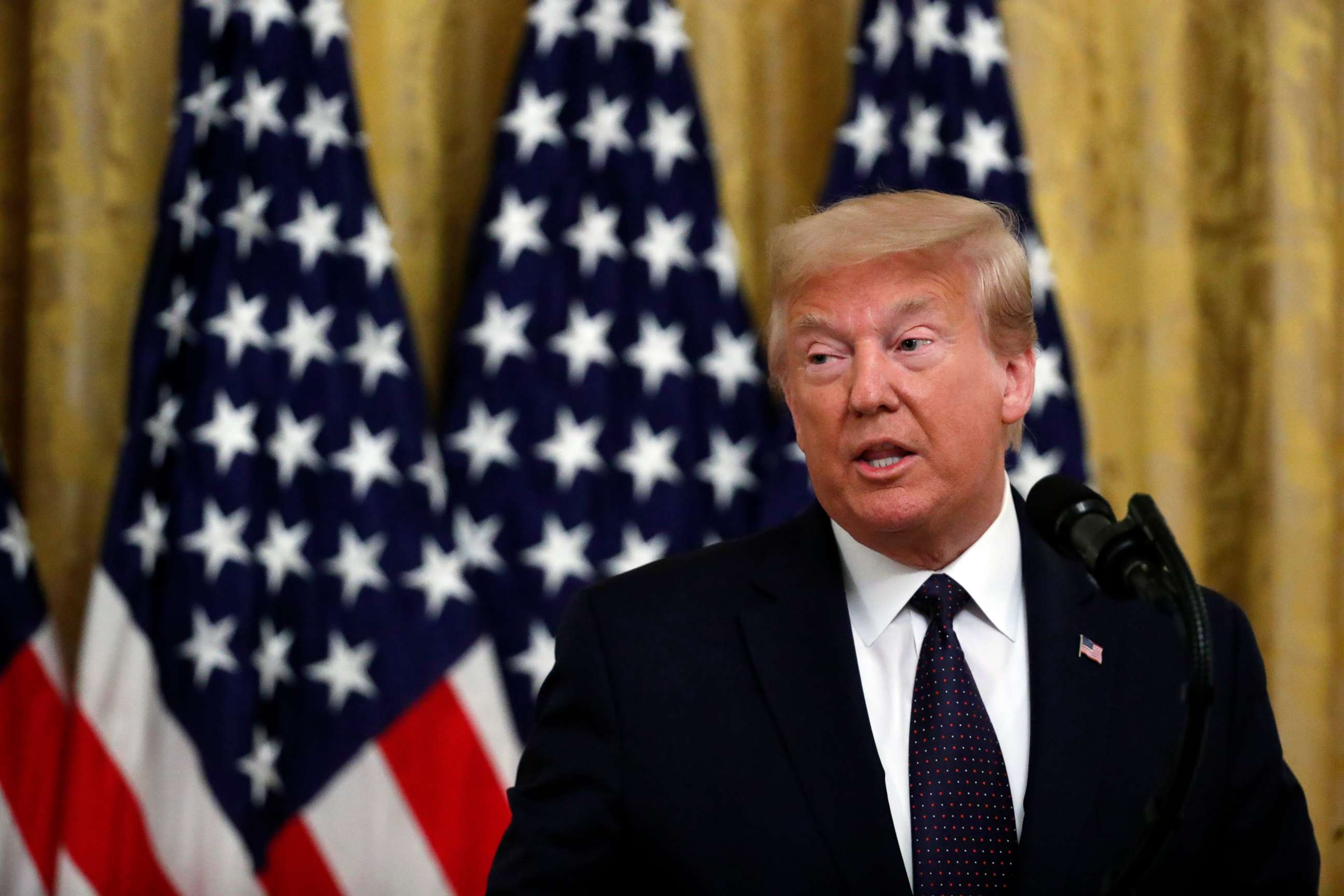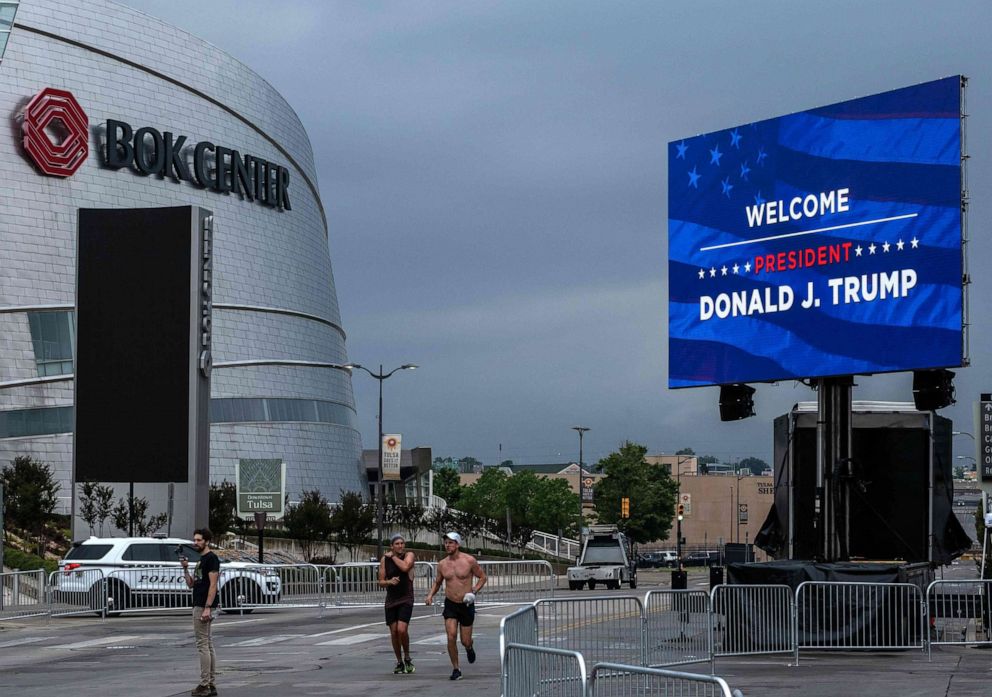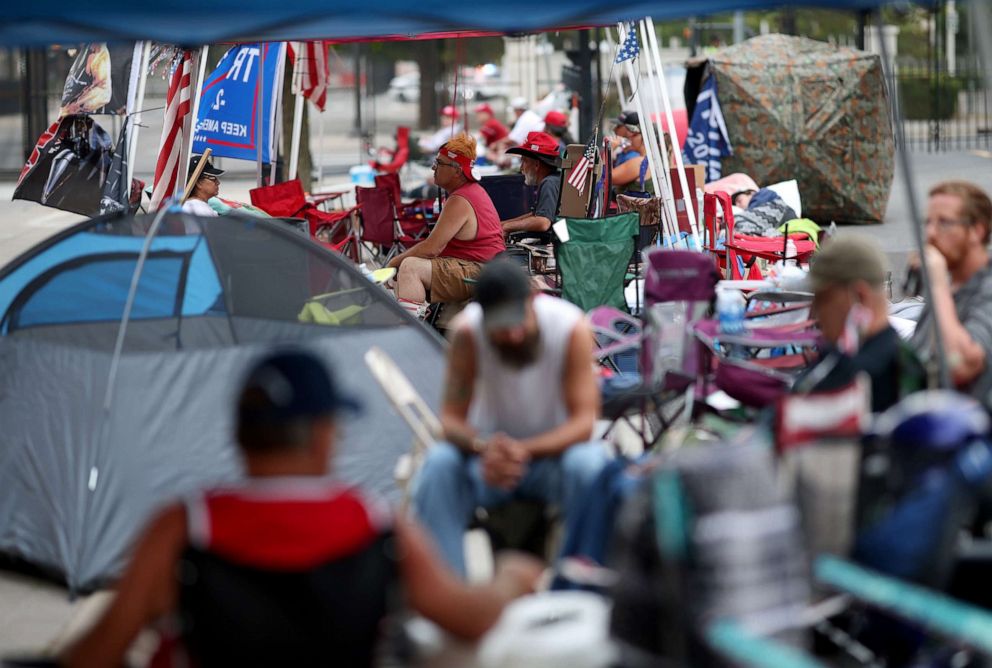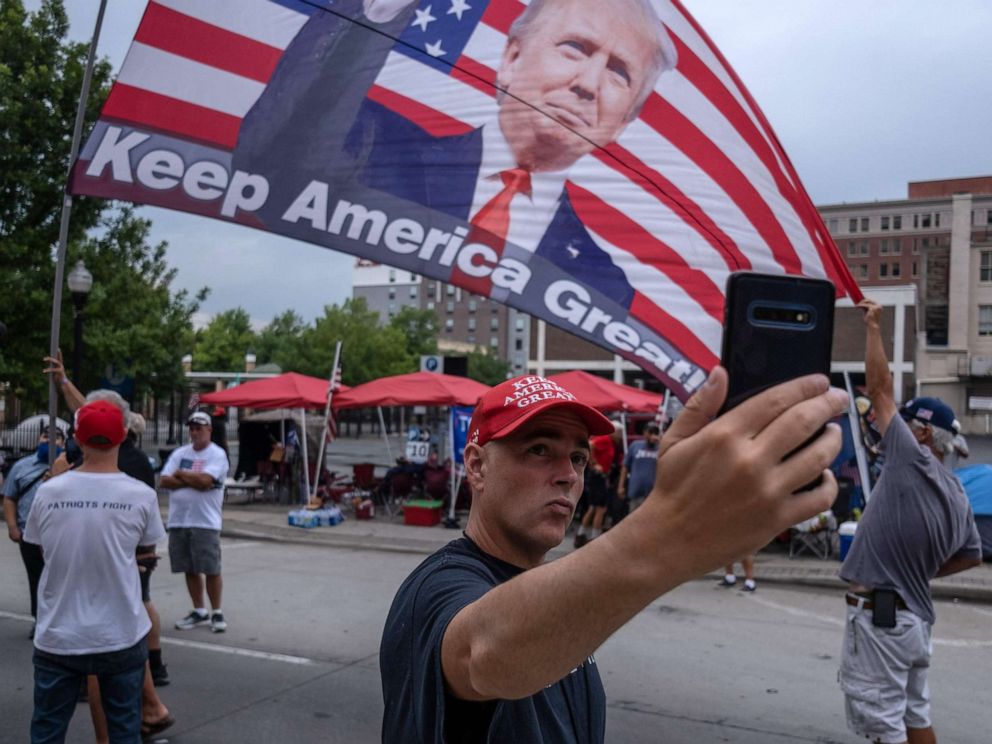After racially divisive tweets, Trump is quiet on Juneteenth holiday he claims he made 'famous'
A high-minded presidential statement is overshadowed by late-night tweets.
After firing off a pair of racially insensitive tweets the night before, President Donald Trump on Friday marked Juneteenth, a holiday that celebrates the end of slavery, with a written statement calling on Americans to commit "to live true to our highest ideals."
He chose not to say anything in public on a day that had taken on new significance in a nation roiled by racial tension over police killings of African American men, even though just days earlier, he falsely took credit for making the holiday "very famous."
He made the claim after getting blowback for scheduling a campaign rally on Juneteenth following weeks of protests calling for racial justice after the death of George Floyd.
Then, on Friday morning, he tweeted a threat against any protesters who showed up at the rally, now scheduled for Saturday in Tulsa, Oklahoma, the site of one of nation's worse race massacres.

The juxtaposition of the formal presidential statement with the late night tweets was just the latest example of how the president has, in recent weeks, fluctuated between offering an occasional scripted message about the need for America coming together while also using more divisive language that has at times been racially charged.
His carefully-crafted Friday statement on Juneteenth came just hours after he tweeted out what a video that included what appeared to be a staged, fake story about a white man, wearing a “Make America Great Again” hat, helping a black Uber driver, in which a woman takes a cell phone video of the incident and portrays it as the white man being racist.
The president also tweeted a video that was altered to look as if CNN had broadcast it with a fake chyron that claimed, “Racist baby probably a Trump voter.” Twitter then labeled the tweet as manipulated media.
In one of his most controversial tweets amid the calls for racial justice, the president tweeted a phrase that echoed controversial racist remarks from a past era.
“Just spoke to Governor Tim Walz and told him that the Military is with him all the way," the president tweeted in May. "Any difficulty and we will assume control but, when the looting starts, the shooting starts."
Trump did not shy away from the statement in a following tweet, saying, "Looting leads to shooting, and that’s why a man was shot and killed in Minneapolis on Wednesday night - or look at what just happened in Louisville with 7 people shot. I don’t want this to happen, and that’s what the expression put out last night means.... "
The White House later argued that Trump was not inciting violence but "clearly condemned it."
In 1967, then-police chief of Miami Walter Headley used the phrase "when the looting starts, the shooting starts" at a press conference while addressing his department's crackdown on "hoodlums." He said Miami hadn't "faced serious problems with civil uprisings and looting because I've let the word filter down that when the looting starts, the shooting starts," according to the Miami Herald. "We don't mind being accused of police brutality," Headley added.
Trump, in a sit-down interview with the Wall Street Journal, confirmed that he meant the tweet as both a statement of fact and a threat. "Both," he said about the meaning.

As the president marked Juneteenth with no events on his public schedule, he had been slated to spend Juneteenth celebrating something else entirely: the resumption of his signature rallies after months off the campaign trail because of the coronavirus.
The president told the Journal that he “did something good” by initially scheduling his comeback rally on the holiday, falsely claiming that “nobody” knew of Juneteenth until him and took credit for making the holiday “very famous.”
The president said the decision to move the rally back came after he spoke to a black Secret Service member who explained the importance of the holiday and then turned to an aide in the room to ask if she had ever heard of the holiday, according to the Journal.
“I did from last year when the White House put out a statement,” the president’s communications director Alyssa Farah responded.
“Oh really? We put out a statement? The Trump White House put out a statement?” Trump said in surprise.
When Farah confirmed that was the case, the president replied, “Oh OK. Good. I don’t think it was put up by others. But we made people aware of it, and it’s good.”
In addition for the date, the rally has drawn criticism for its location in Tulsa, site of one of the nation’s bloodiest incidents of racial violence when, in 1921, some of the city’s white residents brutally attacked black residents in what became known as the Tulsa Race Riots.

Saturday’s rally is expected to draw as many as 100,000 Trump supporters, some of whom have lined up outside the 19,000-seat Bank of Oklahoma Center in Tulsa, days before the rally.
Trump claimed this week that over a million people had requested tickets for the event and his campaign has been exploring possible venues for an overflow crowd.
As he prepares to head out on the campaign trail on Saturday, protests are expected to continue across the country this weekend, some of which will come, once again, to the White House fence.

Tulsa officials are preparing to see some of the largest crowds in recent history with Juneteenth celebrations beginning Friday in the Greenwood District and extending throughout Trump’s rally and the weekend.
Trump on Friday tweeting a warning that any protestors who show up outside or try to disrupt the event will see a “much different scene than how they've been dealt with in "New York, Seattle, or Minneapolis," putting those protestors in the same category as “anarchists” “looters” and “lowlifes.”
“Any protesters, anarchists, agitators, looters or lowlifes who are going to Oklahoma please understand, you will not be treated like you have been in New York, Seattle, or Minneapolis. It will be a much different scene!” he tweeted.
White House press secretary Kayleigh McEnany told reporters later Friday that Trump was specifically referring to violent protesters.
The president said Wednesday that he would “take a look” at the possibility of designating Juneteenth a federal holiday, but his Friday statement made no mention of any effort to do so.
ABC News' Ben Gittleson contributed to this report



